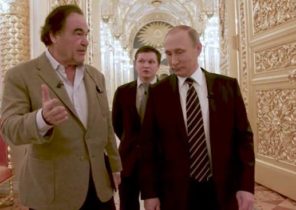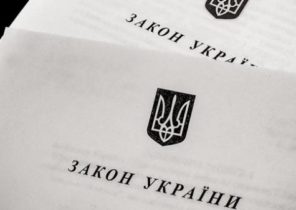Yesterday in the UN security Council, the United States submitted a draft resolution on indefinite extension of the embargo on arms supplies to Iran, because the current on this account the resolution expires in mid-October of the current year. Sharply against the extension of the resolution are Russia and China. USA explain their proposal “dangerous” behavior of Iran in the region and “them sponsoring terrorism.” At the same time, according to Washington if Tehran will be able to procure modern weapons, it may further complicate the situation and jeopardize the security of the entire region.
I remind you that resolution number 2231 of the UN security Council on the five-year ban on transfers to Iran of weapons and military equipment was adopted on 20 July 2015 and expires on 18 October 2020. Of course, adoption of any resolution requires the votes of all five permanent members of the UN security Council. But at the moment to talk about the unanimous support for the resolution is not necessary, as Moscow and Beijing are strongly opposed, and two other members, Britain and France, have not yet adopted an official position (they are now discouraged, because I understand who plays which role in this big game, and their value becomes less).
Meanwhile, us Secretary of state Mike Pompeo continues to exert diplomatic pressure on Russia and China that is constantly expanding the range of countries in the middle East and around the world that support the plans of Washington. Of course, one of these States, and one of the most important, is Israel and Saudi Arabia, which is Arab hegemony and, along with Russia, the largest and most important world oil exporter.
The U.S. Department of state representative Brian hook, who arrived yesterday in Israel for talks with Israeli Prime Minister Benjamin Netanyahu, on 24 June warned Moscow and Beijing that they will remain “in isolation” at the UN if it continues to block the us policy against Iran. Mike Pompeo yesterday at a meeting of the UN security Council, which was held via videoconference, stated the following: “the United States is not alone (in the intention to extend the resolution). Listen to the countries of the region. States in the Middle East, from Israel to the Persian Gulf is extremely concerned about the actions of Iran and echoed to us: extend the embargo on arms”. According to Pompeo, otherwise Iran could buy Russian military aircraft and thus obtain the ability to strike far beyond its borders. Pompeo is also concerned about the development of the Iranian submarine fleet and missile program, which “threaten international transport in the Strait of Hormuz”. Bad and that Iranian weapons could fall into the hands of members of the Lebanese Hezbollah, the Houthis of Yemen, army of Venezuela, Syria and Afghanistan, as stated by the American Secretary of state.
Russia’s representative to the UN, Vasily Nebenzia said that the United States carried out “a policy of maximum pressure” on Iran, aiming to “bring about regime change or to create a situation in which Iran literally can’t breathe.” “It’s like putting a knee on someone’s throat,” said the Russian diplomat, clearly alluding to the death grip that the American policeman strangled the African American George Floyd.
Such rhetoric between the two strongest military powers in the world shows how their relationship is broken in its very basis, and it is easy to understand that, barring certain qualitative progress for the better, all this is unlikely to result in something good for someone else.
Of course, especially interesting in this case, the position of Saudi Arabia, given its well-known rivalry with Iran and the struggle for dominance in the region against the backdrop of improved relations Riyadh with Moscow and Beijing. It is therefore not surprising the statement by Saudi representative to the UN Abdullah al of Mouallimi, yesterday said that Russia and China understand the situation in Riyadh, and that “we try to divide these two issues in our negotiations with them, which are conducted in a spirit of openness, friendliness, and based on the good relationship between all parties.”
Of course, Tehran will not remain indifferent, silently watching. On the contrary! After all, in the end, its fate is decided. So, Iranian foreign Minister Mohammad Javad Zarif said yesterday: “the International community in General and the UN Security Council in particular are facing an important decision: to preserve our respect for the rule of law or to return to the law of the jungle to conform to the desires of bullies and criminals?” It is easy to understand, Zarif referred to the latter category.
In addition, earlier, Iranian President Hassan Rouhani urged Russia and China to give a decisive rebuff to the us anti-Iran plans.
Clouds are gathering over the world
All of this is more than understandable that looms on the horizon of a new stage in international political and diplomatic struggle for Iran, and perhaps, a new crisis, in which at stake is the fate and future of this country. It is clear that Tehran alone can not cope with the growing pressure from the us administration and forced to seek an open protection from Moscow and Beijing. But Iran had to deviate from his long and loudly proclaimed the strategy of independence in foreign policy and non-alignment to any geopolitical sides. Now this course has clearly come to an end. And in the current, unprecedented tense relations between the US on one side and Russia and China on the other, it is also clear that these two countries are happy to take Iran under their wing. Especially it concerns Moscow, which most strongly defends Iran’s interests, when it comes to the aforementioned embargo on arms supplies, and also actively cooperates with Iran in the political and military sphere in the middle East, including in Syria and in the fight against terrorism.
And if so, then clearly, and, by the way, the Washington is well aware that the required resolution of the UN security Council to extend will fail. The only thing that Washington (and he has for some time been working intensively on it) is to persuade its allies and partners around the world to support U.S. economic sanctions against Tehran. And important not only for political support, but also real in view of their compliance with these sanctions against Iran. Of course, the United States are extremely risky game, and all in the world today is very well aware of these risks, including France and Britain (permanent members of the UN security Council) and Germany, a key country of the European Union. Such a radical policy of the United States creates a real probability of a new deep division between East and West (perhaps more deep and dangerous than it used to be a political and ideological rift between the West and the Soviet Union, because this time the opposition is involved and even China). In addition, opportunities for the real armament of Iran “to the teeth”. Tehran, cornered aggressive American policy, of course, wants to arm its army with modern weapons, which he now lacks. And just think how all this “fits” the interests of Israel or Saudi Arabia, which in this case would have more to rely on the protection of Washington (although there is after a possible change of government in autumn a lot of things in Iran can change).
Mass armed with modern types of weapons and hostile rhetoric from both sides can bring nothing but new deep crises and armed conflicts in the middle East. And from participation in these conflicts has little benefit even as key players, because it is clear that sooner or later these conflicts acquire a global scale (each side will help his “protégé” as long as she does not have to be directly involved in the conflict and act independently).







